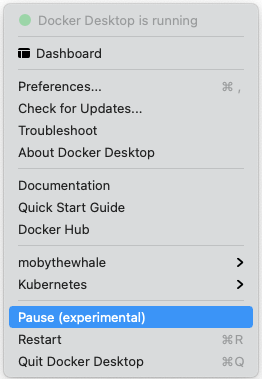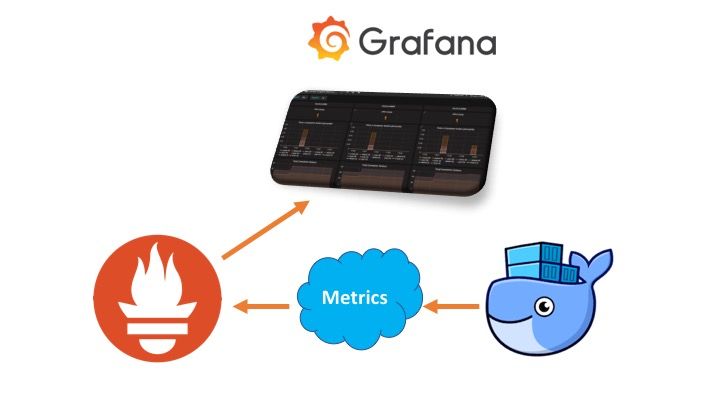
UDP does not guarantee delivery, but will also never block the container from running.
DOCKER FOR MAC DAEMON LOGS DRIVER
Using an alternative log driver means that docker logs will no longer display logs. Replacing logsN and XXXXX with details from the Papertrail log destination (and image-name with the name of the desired image to run). For example: $ docker run - log-driver=syslog Running on another container, or Papertrail itself (see Add Systemsįor host and port).

The destination can be a syslog daemon running on the host, a syslog daemon Alternativesĭocker can log directly to a syslog destination using: $ docker run - log-driver=syslog This works particularly well when your containers are more like traditional systems, such as when they were migrated directly from dedicated systems. This is the same method used by any other Linux logging configuration, such as for a physical system or Xen VM. For example, send app log files with remote_syslog2 and system logs with rsyslog. Use Papertrail’s non-Docker-specific methods for sending system and app logs. mode global gliderlabs/logspout syslog+tls://:XXXXX remote_syslog2 & rsyslog mount type= bind, source=/var/run/docker.sock,target=/var/run/docker.sock \

Mode) and expose /var/run/docker.sock from each node: $ docker service create -name log \ This example invocation starts logspout as part of aĭocker Swarm cluster. All of this are further describe in the logspoutĭocumentation. The syslog format to be used can be set as well, by default Other fields of the logs routed via logspout can be also modified such as its Tag, Replacing the value of the SYSLOG_HOSTNAME key as "". e SYSLOG_HOSTNAME=`hostname -s` gliderlabs/logspout \Īlternatively, the Docker container name can be used as the source system name by v=/var/run/docker.sock:/var/run/docker.sock \ To start a logspout container that will forward logs with theĭocker host's system name as the source system name: $ docker run -restart=always -d \

One example is setting the source system name to be used in the log messages, as byĭefault logspout uses the container ID for that field. The Docker logs that logspout route to Papertrail can be further customized using So be aware of ordering if altering the suggested command. Docker run behavior is sensitive to the ordering of some arguments, The -restart ensures that it will be re-run automatically at hostīoot. Replace logsN and XXXXX with details from one of your v=/var/run/docker.sock:/var/run/docker.sock gliderlabs/logspout \

To start a logspout container, run: $ docker run -restart=always -d \


 0 kommentar(er)
0 kommentar(er)
